IIT Madras Students’ Autonomous Surface Boat Finishes in the top three in the Global Njord Challenge 2023 in Norway
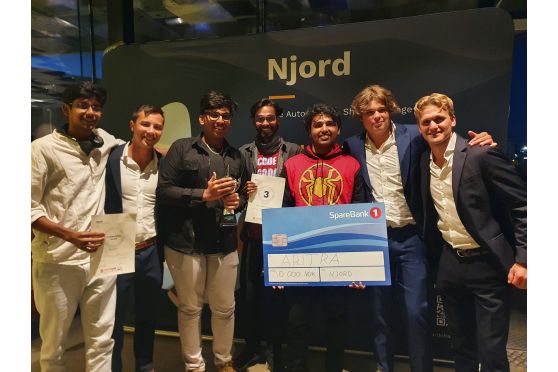

The Indian Institute of Technology Madras (IIT Madras) Student Team Aritra has secured third place globally and also won the Sustainability Award in Njord Challenge 2023, a global competition hosted recently by the Norwegian University of Science and Technology, Norway. They also won a cash prize of 10,000 NOK (Norwegian Krone).
Njord - Autonomous Ship Challenge is a unique, international student competition in which participants are tasked with designing and building an autonomous ship. Teams are invited to bring their vessels to Trondheim’s fjord where they compete in a series of challenges and events.
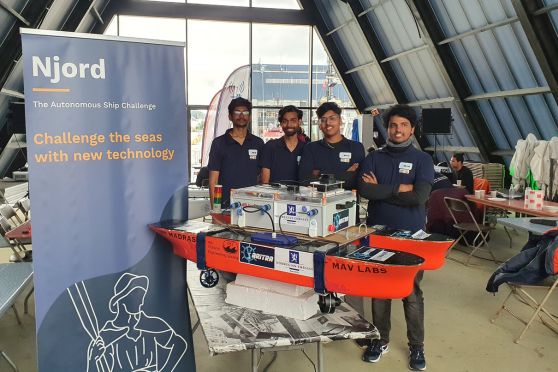
The competition is held for the students with the goal to inspire innovation and smart autonomy solutions for marine domains. The competition also offers students an opportunity for professional development and networking. The competition saw participation from seven top international teams including one from Massachusetts Institute of Technology (MIT), USA.
Team Aritra comprises four students from the Department of Ocean Engineering's Marine Autonomous Vessels (MAV) Laboratory - Mr. Mohammed Ibrahim M, Mr. Amarnath Singh, Mr. Akash Vijayakumar and Mr. Rakshin Ramesh. They were mentored by IIT Madras faculty Dr. Abhilash Sharma Somayajula and Prof. MA Atmanand. The team was also supported by Mr. Prabhakaran Jay, Mr. Vallabh Deogaonkar from the MAV Laboratory.
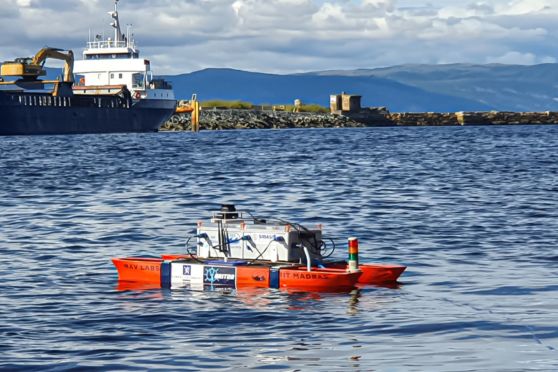
Congratulating the students, Prof. V. Kamakoti, Director, IIT Madras, said “There exists an opportunity for Indian industry and startups to take this up on a commercial basis under the ‘Make in India’ program of the Government of India.” He also encouraged students of Team Aritra to think of forming a startup themselves.
The competition involved testing of the autonomous surface ships in three facets:
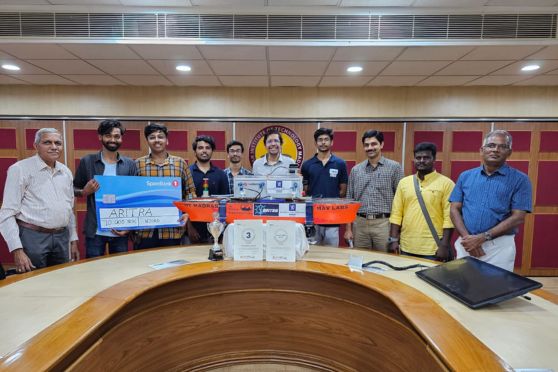
Speaking about their performance, Mr. Mohammed Ibrahim said, “We performed as well as the other global teams and demonstrated the best performance in ‘dynamic collision avoidance task,’ which is the hardest of the three tasks. Our performance on this task prompted the judges to engage in further discussions about the algorithms and how it might be packaged for implementation into a commercial product.”
Lauding the students on their performance, Faculty Advisor Dr. Abhilash Sharma Somayajula, Assistant Professor, Department of Ocean Engineering, IIT Madras, said, “The success of Team Aritra shows that our students are on par with students from global universities. Participation in such global competitions allow students to gain hands-on experience, discover their passion and develop their personality. I hope the success of Team Aritra inspires more students to explore the area of marine autonomy.”
Faculty Mentor Prof. MA Atmanand, Visiting Professor, Department of Electrical Engineering, said, “With suitable additional modifications such as providing solar panels to generate energy, they could overcome the limitation due to the finite battery capacity.”
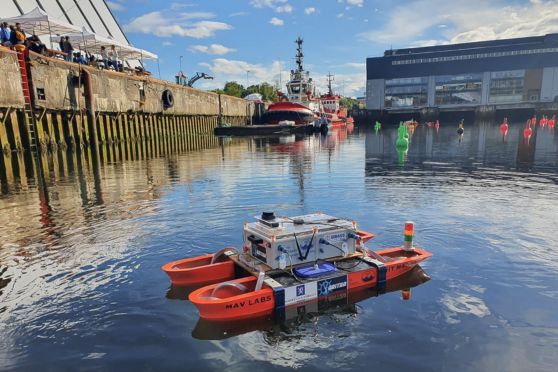
The applications for this project are varied. In the context of the safety and security of the country, such vehicles will be able to do live monitoring of coasts, especially strategic locations such as ports, harbours, and defence installations, among others, on a continuous basis. These vehicles could be mounted with a suite of sensors to monitor the seas and the ocean-atmosphere to collect data autonomously, which could then be used in models leading to climate change studies.
Central to their success was the invaluable support provided by sponsors such as IEEE Oceanic Engineering Society, Madras Chapter, which played a pivotal role as a technical and financial sponsor, bolstering the team's technical capabilities and providing a solid foundation for their endeavours. The generous contribution of the Royal Norwegian Embassy in New Delhi as a travel sponsor enabled Team Aritra to physically participate in the competition, turning their aspirations into reality.
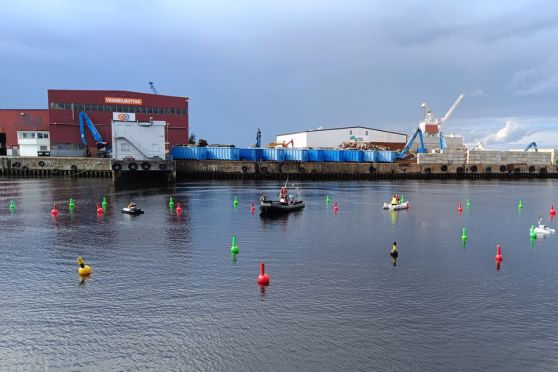
For Team Aritra, their triumph was not just about victory. It was an opportunity to represent India on a global platform, showcasing the nation’s prowess in the realm of marine autonomy. Competing against formidable adversaries, Team Aritra found themselves in the company of participants from renowned institutes such as Istanbul Technical University, Turkey, MIT, USA, University of Lisbon, Portugal, University of South Eastern Norway, University of Strathclyde, Scotland, and Norwegian University of Science and Technology (NTNU), Norway. The competition's ranks showcased Turkey at the top, followed by Portugal in second place, with Team Aritra proudly securing the third position.
The NJORD Autonomy Challenge's esteemed jury consisted of luminaries from prominent marine autonomy companies and marine authorities. Notable entities such as Kongsberg, Zeabuz, ABB Marine, DNV, Maritime Robotics, and NTNU professors lent their expertise to evaluate and recognize the innovations presented by the participating teams.